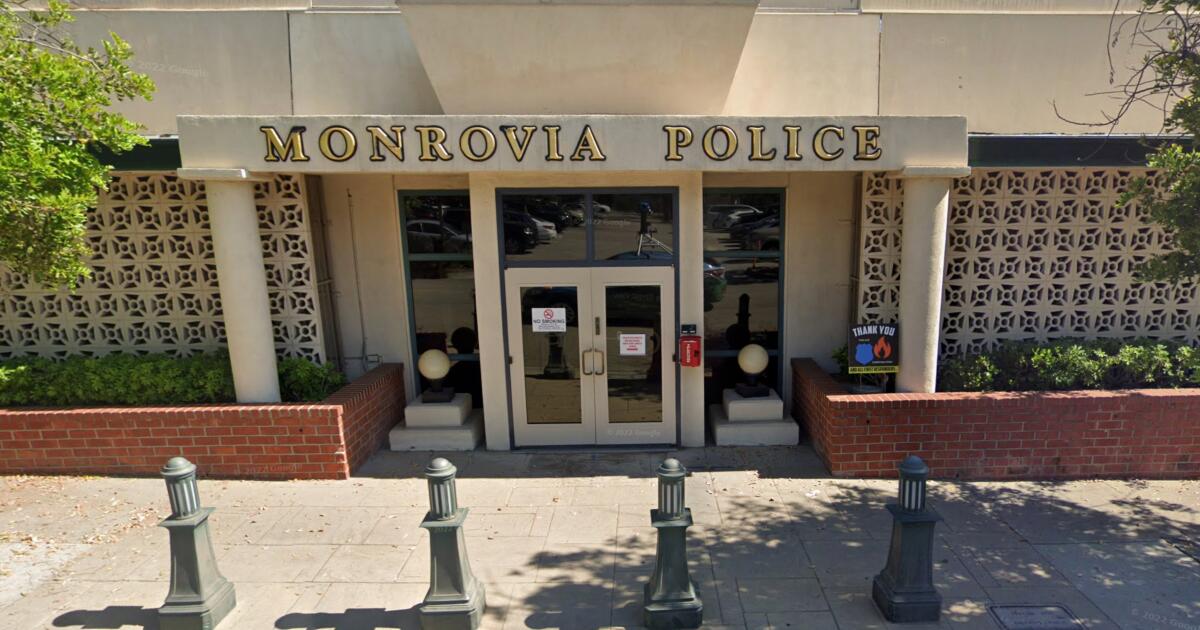Kamala Harris has already stolen one idea from Donald Trump. Now she should steal another one, to help middle-class families in California and other high-tax states.
Forget pride of authorship. If an idea is politically sound (or even good policy), stick with it. It's election season. Keep an open mind and recognize that even a campaign opponent (even the despicable Trump) can occasionally have something worthwhile.
Harris should copy Trump's promise to restore the federal tax break for state and local taxes (SALT in government jargon), if only because it would dramatically help millions of fellow Californians.
The vice president has already set a precedent for campaign theft.
Last month, Harris deftly adopted Trump’s proposal to exempt service-sector workers’ tips from federal income tax. At the same time, she won the backing of the powerful Las Vegas Culinary Workers Union, which is packed with restaurant and hotel workers.
Nevada is one of seven swing states expected to decide who wins the presidency on Nov. 5.
Never mind that the idea of exempting tips from taxes has its flaws. Many tipped workers earn so little that they don't have to pay federal income taxes, so they wouldn't get any benefit.
Tips are income anyway. Why should one source of income be tax-exempt and another not?
But the tip exemption probably matches reality. I suspect that all those tips are not declared as income anyway. They are part of the underground economy. And is the IRS bothering to catch these “cheaters”? It is doubtful. It should really focus on uncovering the big tax frauds.
The SALT idea also has its critics.
First the context.
Trump and congressional Republicans eliminated the tax break in 2017. Now Trump believes it is politically beneficial to restore it as he tries to appeal to middle-class voters.
“I’m going to turn things around, bring back SALT, cut your taxes and much more,” Trump wrote last week on his social media platform, Truth Social. He reiterated his promise later at a campaign event in New York.
“Trump is making an absolutely empty promise,” said Rep. Katie Porter (D-Irvine), a leading proponent of reviving the SALT deduction. “He’s created this mess with the SALT deduction.”
Trump needed money from the middle class to fund his 2017 corporate tax cuts. So he and Republican members of Congress imposed a $10,000 cap on state and local tax deductions.
Before that, we could deduct all of our state income taxes and local property taxes on federal returns. The average SALT deduction in California had topped $18,400. In the first year of the cap, Californians who itemized deductions were hit with a total additional tax burden of $12 billion, the state’s Franchise Tax Board reported.
Democratic states with high taxes were particularly criticized by the Republican legislation. It was not a big problem in many Republican states with low or no income taxes, such as Texas and Florida.
Then-California Gov. Jerry Brown charged that Republican congressional leaders were “wielding their power like a bunch of mob thugs.”
Much more recently, Republican Rep. Mike Garcia of Santa Clarita said the SALT cap was “a legislative middle finger to middle-class families in our community. It’s penalizing Democratic states, which is where I live.”
In 2021, Gov. Gavin Newsom and six other Democratic governors sent a letter to President Biden urging him to “remove the cap.” Nothing was done.
“The SALT limitation was based on politics, not logic or good governance,” the governors said. “This attack was disproportionately directed at states governed by Democrats.”
Critics argue that eliminating the SALT cap — or even raising it to, say, $80,000 — would primarily benefit the wealthy. They are wrong.
It would help any taxpayer who itemizes deductions when filing their federal income tax return, especially a homeowner who pays property taxes. In California, that amounts to a few million.
What is considered wealthy in some states is middle class in much of California, where housing is often unaffordable. A larger property tax deduction could go a long way.
It is true that wealthier people would be the ones who would save the most money in taxes, but this is relative. The savings for the middle class could be more significant.
I suspect that many critics of the SALT deduction are renters who have little to itemize and opt for standard deductions. One positive feature of the Trump tax law was that standard deductions were nearly doubled. So that entire tax plan should not be thrown out.
Another complaint about the SALT deduction is that it subsidizes taxes in high-tax states like California, New York and New Jersey.
“States that get more from the federal government than they pay in taxes are mostly Republican states. States that get less from the federal government but pay more in taxes are mostly Democratic states,” says Rep. Ted Lieu (D-Torrance), who has tried to reinstate the SALT deduction without getting anywhere.
“Blue states subsidize red states. We should try to reduce costs for all middle-class families.”
Porter has worked hard to restore the tax break. He introduced a bill that would have eliminated the cap for all taxpayers earning less than $400,000 a year.
“It never saw the light of day,” she says.
“There was no commitment from either the Democratic or Republican leaders,” he says. “That is a fact. Because if they had wanted to… [to alter the cap] They would have put the bill in the [House] “Voting room”.
And that makes sense.
Porter will leave Congress after this year. She ran for Senate and came in third in the primary, so she did not qualify for the November election.
Trump's tax law, with the SALT cap, is set to expire next year unless Congress renews it. There will be a fight over which parts to keep and which to scrap.
Harris should join Trump in pledging to end the cap. It would be good politics and even better strategy.












